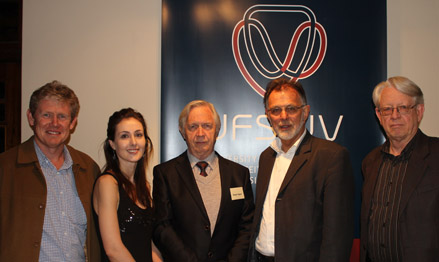Latest News Archive
Please select Category, Year, and then Month to display items
12 October 2020
|
Story Dr Cindé Greyling
|
Photo Supplied
 Exercise and nutrition can work wonders for your mental health – you don’t even have to ‘feel like’ or ‘enjoy’ moving around and eating well for it to work – it does its thing anyway.
Exercise and nutrition can work wonders for your mental health – you don’t even have to ‘feel like’ or ‘enjoy’ moving around and eating well for it to work – it does its thing anyway.
Nowadays, people talk about mental health like it is the common cold – which is good! But do you know what it really means? Being mentally healthy does not only refer to the absence of a mental illness but includes your emotional and social well-being. One would almost want to add physical well-being too, since a healthy body does indeed support a healthy mind. However, since so many people consider themselves ‘mental health experts’, some myths have been sold as truths.
Myth #1 – You are doomed.
Nope. Never. You are never doomed. There is always help. Mental-health therapies range from self-help, talk therapy, medication, to hospitalisation in some cases. Somewhere on this spectrum of treatments, there will be something that works for you. But you must be willing to get the help and do the work. For starters, exercise and nutrition can work wonders – you do not even have to ‘feel like’ or ‘enjoy’ moving around and eating well for it to work – it does its thing anyway.
Myth #2 – It won’t affect you.
It may. Research suggests that one in five people may suffer from a mental illness at some point in their lives. Being well now does not mean that it will stay that way. Biological and environmental factors both impact your mental health. Hopefully not, but at some point, you may experience an event that affects your mental health.
To remain integrated in a community is always beneficial
for anyone suffering from a mental or physical condition.
Myth #3 – Someone struggling with mental health must be left alone.
Hardly! To remain integrated in a community is always beneficial for anyone suffering from a mental or physical condition. You do not need to fix them, but to remain a friend. Continue to invite them, even if they decline. Do not judge, and do not try to understand. Just stay around.
Go and be kind to yourself, and to those around you.
Supplementum analyses the San origin of South African place names
2013-09-25
|
 |
|
At the launch were, from the left: Prof Lucius Botes (Dean: Faculty of the Humanities), Christine van Deventer (SUN MeDIA), Prof Peter Raper (author), Prof Theodorus du Plessis (Head of Department: Linguistics and Language Practice), and Prof Dirk van den Berg (outgoing editor).
Photo: Jerry Mokoroane
25 September 2013 |
The Acta Academica Supplementum 2012 (2), under the outgoing editorship of Prof Dirk van den Berg, was launched on 16 September 2013. The author, Prof Peter Raper, is one of the leading place-name experts in South Africa. The Supplementum analyses the San origin of South African place names whereby different layers of language contact are exposed. For example, Dipodi (previously Jakkalsdraai), is an adaptation of the original San name. The first ‘di’ is the added Sotho preposition. ‘Po’ is equal to the San word ‘po’ (jackal) and the last ‘di’ equal to ‘/gi’ (to bend). Prof Raper’s research indicates that many place names carry evidence of various language shifts. By analysing these language layers, different phases of language contact are exposed. This research is instrumental in the preservation of a unique aspect of the South African cultural heritage.
Prof Raper is since 2011 Honorary Professor: Linguistics, in the Department of Language Management and Language Practice at the University of the Free State. He is one of South Africa’s leading toponymists. The fourth edition of the New Dictionary of Southern African Place Names, with Dr Lucie Möller and Prof Theodorus du Plessis as co-editors, is currently in the press. He is a member of the Commission for Toponymy of the International Geographical Union, as well as the Working Group for Toponymy of the International Cartographic Association, of which there are only ten members worldwide, and a member of the Editorial Advisory Board for the journal Names.